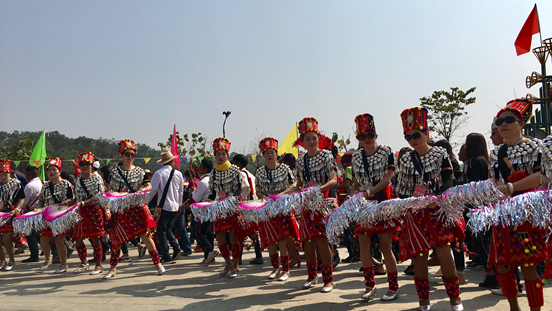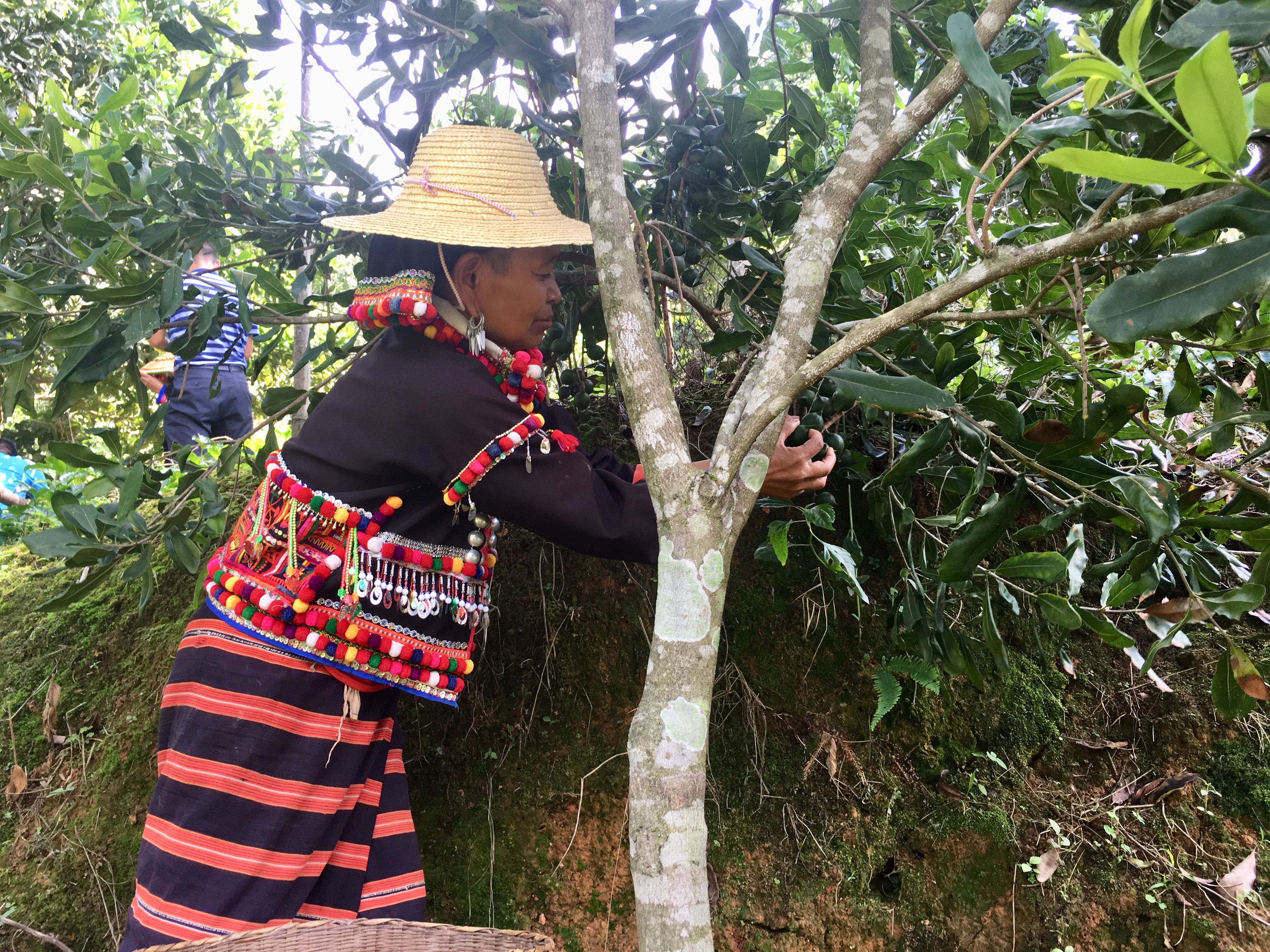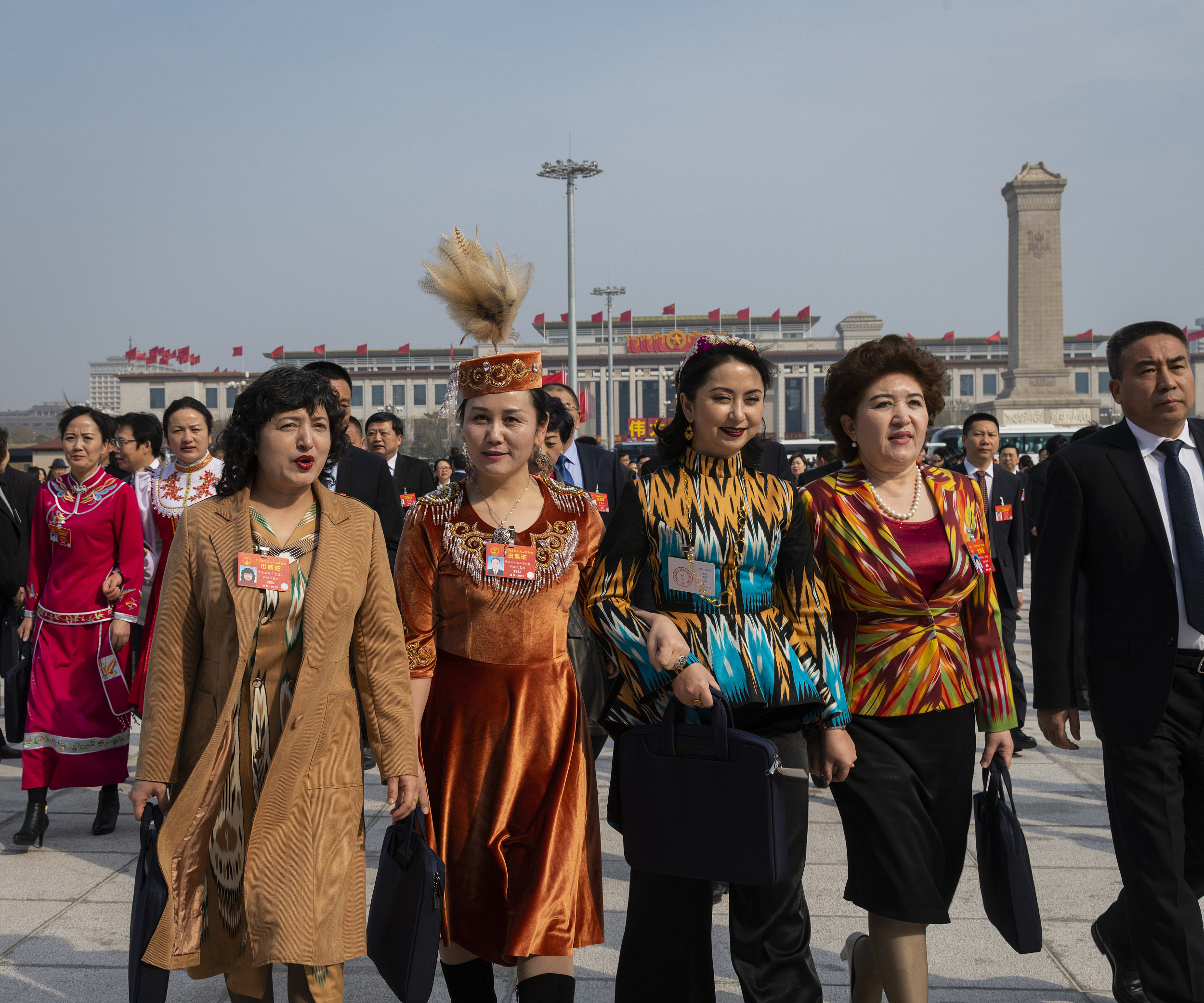03:11

Like his fellow villagers, Yang Lawan is busy harvesting macadamia nuts this season.
On a map, they can't even identify where the nuts come from. With the help of the local government, the exotic food is creating handsome profits for this small town in southwestern Yunnan Province, the major habitat for the De'ang ethnic group, which has a very small population.
"We used to grow crops like rice and corn, which had limited economic benefits. They could barely support our living. After bringing in macadamia nuts, now we can make more money for other uses," Yang told CGTN.

A member of the De'ang ethnic minority group from Mang city in Yunnan Province harvests macadamia nuts./CGTN Photo
A member of the De'ang ethnic minority group from Mang city in Yunnan Province harvests macadamia nuts./CGTN Photo
When all his trees grow, Yang expects to earn about 300,000 yuan (42,000 U.S. dollars) annually from the new cash crop.
Over the past few years, benefiting from the nation's poverty alleviation drive and preferential policies toward ethnic minorities, the town has experienced profound changes.
"Take our infrastructure, for example. The roads were unpaved and rugged when I was a child. But now, you can see concrete roads and people can drive right home," said Yang.
In April, the Yunnan provincial government announced that three ethnic groups only inhabiting the province, including De'ang, Dulong and Jino, were all lifted out of poverty, with their per capita disposable income exceeding the average level of the province and basic public services being greatly improved.
These three groups with very small populations are among those that have directly transitioned to a socialist society from the primitive society after the founding of the People's Republic of China.
For quite a long time, most of the country's ethnic groups lived in a primitive way in isolated areas. There were even pervasive oppression and exploitation. Since the founding of New China in 1949, everything started to change.

Deputies from ethnic minority groups attend the annual National People's Congress session in 2019. /VCG Photo
Deputies from ethnic minority groups attend the annual National People's Congress session in 2019. /VCG Photo
He Ming, a professor of ethnology from Yunnan University, told CGTN that an important move was to promote equality with diverse measures.
"Institutionally, each ethnic minority group was guaranteed with certain seats in the country's top legislature and political advisory body. And the country implemented the ethnic autonomy system in some regions to make sure the natives were the masters of their own affairs. These measures properly solved the discrimination issue in history," said He.
Based on this, the central government has been promoting solidarity among different groups. Professor He says this is vital to the development of each group and the country as a whole.
A small village in Dali city is a good example in this regard. Some 500 residents there belong to seven different ethnic groups.
"Though we are from different groups, it seems we are from the same origin and live like a big family. Harmony is very important for even a single family," said local resident Wang Pinzhen.
Wang was born into a local traditional Bai family, but his son-in-law and daughter-in-law are from Han and Yi groups respectively. He said he has witnessed how the integration of different ethnic cultures has impacted the remote village.

Members of a family in a village in Dali, Yunnan Province, chat. The family members are from three different ethnic groups./CGTN Photo
Members of a family in a village in Dali, Yunnan Province, chat. The family members are from three different ethnic groups./CGTN Photo
Professor He says as the quality of life of all ethnic minorities continues to improve, the protection and inheritance of their unique culture is also paramount. This is what the country has been dedicated to in recent years. For example, many ethnic art forms and crafts have been listed as national intangible cultural heritages in an attempt to preserve and inherit them.
Yang Lawan says this is also the wish of the De'ang people – keeping their traditions as their soul. And they are just taking action.
(Cover photo: People of Jingpo ethnic minority inhabiting Yunnan Province celebrate annual Munao Zongge Festival. /CGTN Photo )